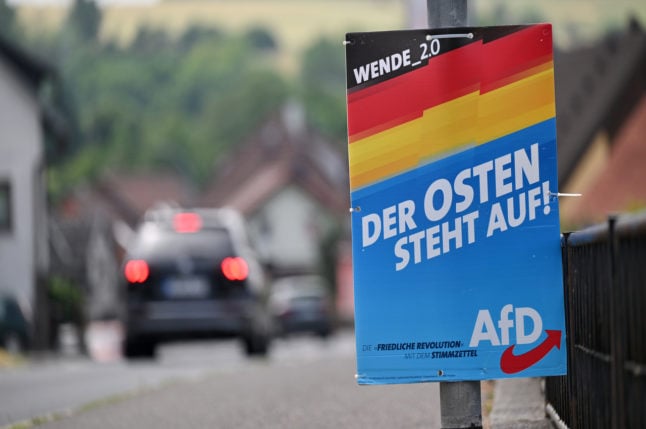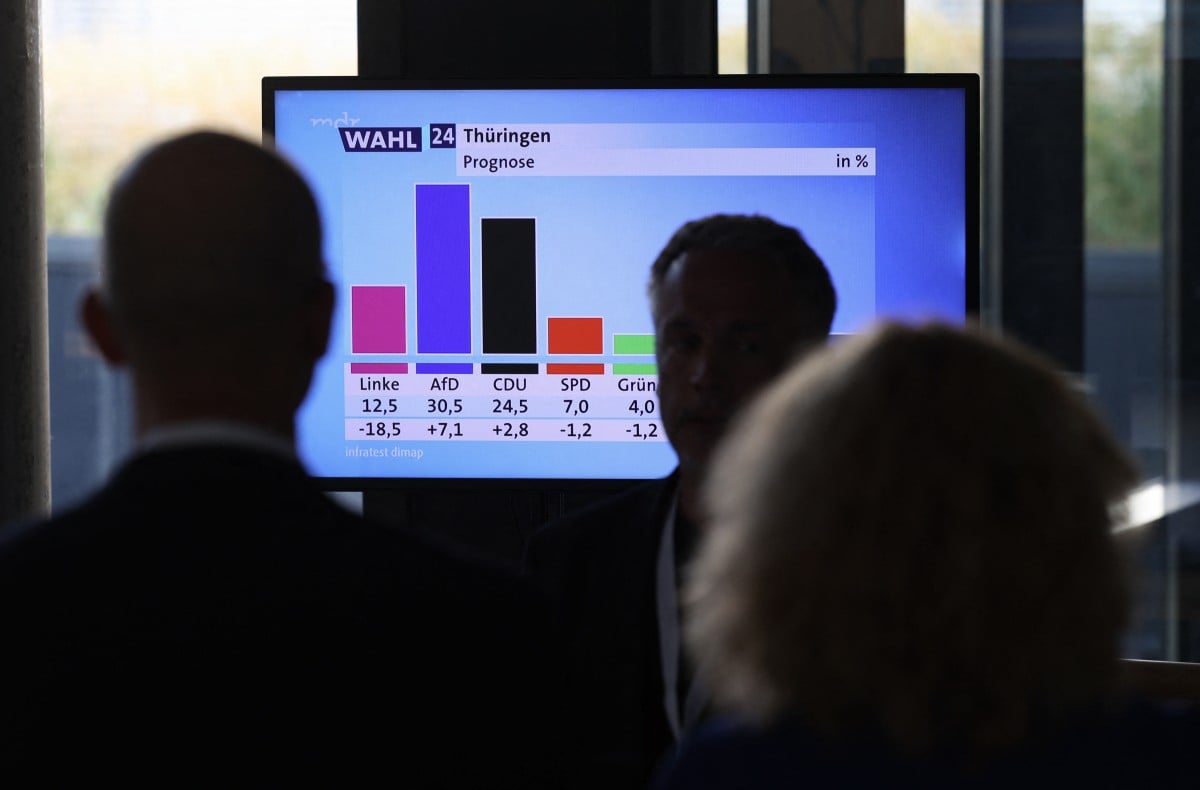On the border with Poland, the quaint little town of Görlitz has become the backdrop of many Hollywood blockbusters including “Inglorious Bastards” and “The Grand Budapest Hotel”.
It holds a second round run-off vote for a new mayor later this month, after a first vote was topped by the candidate from the far-right Alternative for Germany (AfD) party.
Alarmed that the town could become the first in Germany with an AfD mayor, actors including Daniel Brühl and Volker Bruch, plus writers like Daniel Kehlmann and Bernhard Schlink have signed a petition urging voters in Görlitz: “Don't give in to hate and hostility, conflict and exclusion.”
READ ALSO: Eastern German town of Görlitz named the best filming location in Europe
 Volker Bruch who starred in Babylon Berlin was also part of the call. Photo: DPA
Volker Bruch who starred in Babylon Berlin was also part of the call. Photo: DPA
“Please vote wisely… Don't betray your convictions the moment someone claims to be able to solve problems for you,” according to the appeal that is to be officially published on Monday.
SEE ALSO: Meet the East German Greens candidate offering another alternative
As The Local reported, in mayoral elections held on May 26th, the AfD candidate Sebastian Wippel, 36, took 36.4 percent of the vote. He was followed by Christian Democratic (CDU) candidate Octavian Ursu, 51, who won 30.3 percent of the vote.
Green Party candidate Franziska Schubert, 37, came in third place with 27.9 percent of the vote.
 The picturesque town has been featured in several movies. Photo: DPA
The picturesque town has been featured in several movies. Photo: DPA
However, because none of the candidates won an absolute majority, there will be another round of elections on June 16th. On May 26th, 58.6 percent of the city's 56,000 residents voted.
Political rift
The results show a political rift in the population. The far-right populists in Görlitz won 32.9 percent of the votes in the Bundestag (parliamentary) elections in 2017 and were 6 percentage points ahead of the Christian Democratic Union (CDU).
Görlitz, Germany's most eastern town, has seen a mass exodus – like many others in the former communist East – as people sought higher wages in western regions.
Spared damage by Allied bombing during World War II, the Old Town's eye-catching medieval architecture draws a steady stream of visitors, some hoping to catch a glimpse of Hollywood stars in action.
But like in other towns in the state of Saxony, the anti-migrant AfD party has gained a strong footing in Görlitz, manging to woo over voters.
 Alice Weidel, leader of the AfD parliamentary group in the Bundestag takes a selfie during the election campaign in Görlitz. Photo: DPA
Alice Weidel, leader of the AfD parliamentary group in the Bundestag takes a selfie during the election campaign in Görlitz. Photo: DPA
Railing against Chancellor Angela Merkel's decision to let in more than a million asylum seekers, the AfD took nearly 13 percent of the vote overall in the federal elections, becoming Germany's biggest opposition party.




 Please whitelist us to continue reading.
Please whitelist us to continue reading.
Member comments